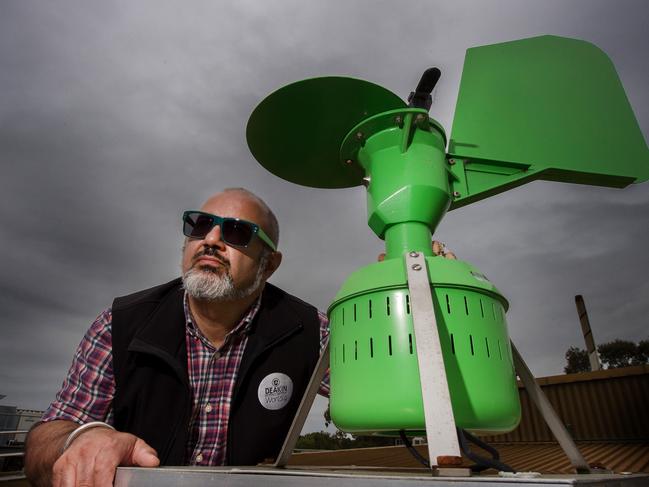Fears thunderstorm asthma epidemic brewing
Experts are warning conditions in Victoria are ripe for a thunderstorm asthma epidemic heading into the peak time for the phenomenon.

Geelong
Don't miss out on the headlines from Geelong. Followed categories will be added to My News.
Victoria is on track to have its worst thunderstorm asthma season since 2016 amid fears the state’s already strained health system will struggle to cope.
Geelong hospital’s emergency department leaders are undertaking detailed planning to ensure it can cope with a surge in patients if epidemic thunderstorm asthma cases occur.
Deakin University environmental allergist Associate Professor Cenk Suphioglu warned prime conditions, including a high pollen count and humidity, could trigger thunderstorm asthma across the state from November.
Ten people died during the epidemic event in November 2016 as the state recorded its worst year on record for thunderstorm asthma cases.
According to health department data, Geelong and Melbourne recorded 12,723 thunderstorm asthma related hospital presentations between November 21 and 22 that year.
Prof Suphioglu, the director of Deakin Airwatch, said there were fears this year could be equally as challenging due to the global coronavirus pandemic.
He said three key challenges facing Victorians were stormy warm weather, patients who had compromised immune systems after earlier contracting Covid and the pressure on the health system at the moment.

Prof Suphioglu urged asthmatics and anyone who had had Covid-19 to speak to their doctor and devise a preventive plan.
“It's more important than ever to be armed with an asthma action plan,” he said.
“Don’t rely on the overstretched ambulance system to come to your rescue.”
He said medical experts were still learning about the long term impacts of Covid on immune systems, raising concerns these patients could be even more vulnerable.
Barwon Health’s emergency department director, Dr Belinda Hibble, said when a rare thunderstorm asthma event occurred hospitals recorded a large volume of cases within a short period.
“The emergency department leadership team is currently undertaking detailed planning to ensure that we have the capacity to manage a thunderstorm asthma event during the current Covid-19 outbreak,” Dr Hibble said.
“We are also liaising with our valued GP colleagues in the community through our GP Liaison Unit, as they will play a vital role in managing this event should it occur.”
Common symptoms include breathlessness, chest tightness, wheezing or coughing.
Western Victoria primary health network’s Dr Anne Stephenson said the ability of hospital’s to respond to a thunderstorm asthma epidemic had changed in the wake of the pandemic.
“People need to understand and appreciate the pressure our entire health system is currently under,” Dr Stephenson said.
“While the physical effects of Covid-19 on thunderstorm asthma are not well understood, it would be prudent to assume that any respiratory illness may affect a person’s response to grass pollen levels and a thunderstorm asthma event.”
Dr Stephenson advised anyone with a history of asthma or respiratory conditions to stay indoors if a thunderstorm asthma event was occurring and to take any prescribed preventive medication.
More Coverage
Originally published as Fears thunderstorm asthma epidemic brewing




